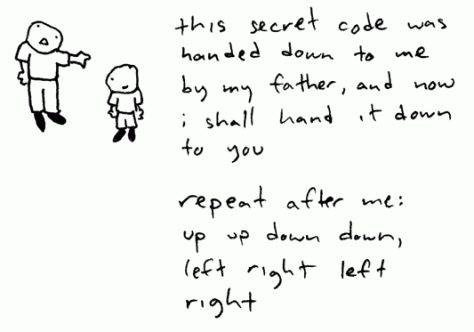IMPORTANT NOTE: Cheating, once again proved itself to be a worthless asshole. Because of my lack of researching BitMessage before completing the assignment, my oh-so-clever shortcut turned out to be a big mistake as you can read here. So, I’ve included an update to my assignment review to include what I learned after I actually did what I was supposed to.
The Assignment:
Create an anonymous messaging account using Bitmessage and contact Mister B from it. Update: BitMessage and BitMessage.ch are NOT the same thing. Good to know.
Why I think it is Important:
I think this assignment is important to recognize and establish the importance of privacy/anonymity. We are living in a world where it seems like everything we do is monitored. Even if you aren’t involved in shady or criminal communications, don’t we have the right to have private conversations?
Do I feel the assignment was a Success or Failure?
This assignment was a successful failure because I was able to cheat the system by not doing my homework before completing the assignment. I also don’t really get the point of using Bitmessage because I don’t see the difference between using it and creating an anonymous hotmail account.
Update: I didn’t cheat the system. I’m not clever, I’m lazy. The difference between BitMessage and a hotmail account, is that with hotmail or any other email account like that (gmail, AOL, etc), your messages are open to be seen by Big Brother and they are stored on the hosts server. In other words, its not encrypted and therefore it’s not private. BitMessage doesn’t store your messages. In the end, cheating actually made me more aware of the importance of BitMessage, so I guess it wasn’t so bad…right?
How did this affect your thoughts on BitCoin?
It doesn’t really. I understand that they are both pioneer spokespeople for our right to privacy, but that doesn’t have any bearing on my thoughts of Bitcoin right now. Update: After learning that BitMessage is designed off the operating model for Bitcoin, I think it’s interesting that Bitcoin has influenced and aided in the creation of something in a different realm.
How does this relate to my everyday life?
As of now, it doesn’t relate at all. I don’t personally have a use for “secret” messages anymore. I don’t write anything that I would be worried about some watchful eye reading or if it was stored on a server.
Update: But that’s not really the point is it? Whether or not people have something secret to say, shouldn’t dictate whether or not its okay for someone else to read or record it. But, the catch-22 is that, until it became more popular, I wouldn’t use it socially. The messages take a long time to send because of their encryption and authentication processes (called “work”), and once you are using the actual software (Read: Not using a website like bitmessage.ch to send the messages back and forth, but instead the actual email client software from your own desktop) you cannot send messages to anyone that doesn’t use the software. There are no “@blahblah.com” things at the end of the addresses, so messages can only be sent through the desktop program.
What other issues or thoughts did this assignment bring up?
Update: I’m obviously never going to try to cheat the system with this experiment/project again. Especially because if there had been any sensitive information sent back and forth for the first few days, I would have compromised the entire mission.
What resources did you use while researching this assignment?
BitMessage.ch – Where you can create a BitMessage account! (Update: This is not a BItMessage account, it’s a BitMessage.ch account. BIG DIFFERENCE.)
Update: Since I didn’t do my research the first go-round…
Let’s Talk Bitcoin: EP12 – “You Get My BitMessage?” Much more interesting than the link below, but probably because its less on how to use it, and more on what it is.
Udemy.com: “Bitcoin or How I Learned to Stop Worrying and Love Crypto” – Lessons 17 & 18 (Warning: These are extremely slow and boring lectures with a less-than-glamorous accompanying Power Point presentation — BUT it teaches you how to use the software well.)
Let’s Talk Bitcoin: Can BitMessage Replace Email?
BitMessage.org Where you can get the client software to start sending secret messages!



